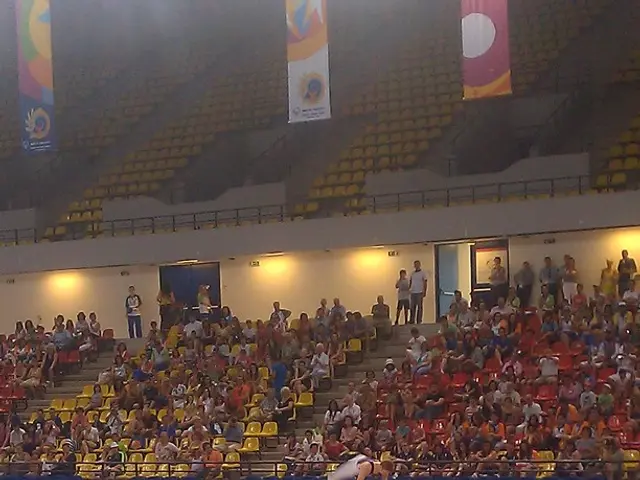Ensuring the best functioning of autonomous anti-corruption bodies in Ukraine is crucial
In a swift turn of events, Ukrainian President Volodymyr Zelensky has approved a draft bill aimed at restoring the independence of the country's anti-corruption bodies. This move comes in response to a controversial decision made in July 2025, when Parliament passed a law that transferred control over key anti-corruption agencies to the Prosecutor General's Office.
The decision, which effectively ended the independent status of the National Anti-Corruption Bureau (NABU) and the Specialized Anti-Corruption Prosecutor’s Office (SAPO), sparked immediate nationwide protests, marking the first major anti-government demonstrations since Russia’s invasion. Citizens denounced the rollback on corruption reforms and warned of a return towards autocracy.
The EU and Western partners strongly criticized the move, indicating it would complicate Ukraine’s EU accession prospects. The anti-corruption bodies had been a key condition and symbol for Ukraine’s EU integration.
In response to the backlash, Zelenskyy quickly submitted new legislation on July 24 to restore and guarantee NABU and SAPO’s independence. The agencies welcomed the draft and urged Parliament to pass it promptly, while protesters vowed to maintain pressure until the threat was fully removed.
The draft law is intended to strengthen the rule of law in Ukraine and protect it from Russian influence or interference. It is also designed to respect the position of all Ukrainians and promote transparency and openness, key values in Ukraine's democratic progress and crucial for maintaining vital Western support critical for EU integration.
Latvia, a strong supporter of Ukraine, has pledged to continue providing comprehensive support to Ukraine in its fight against Russia's war. Latvia is in intensive contact with the Ukrainian side, EU officials, other EU countries, and Ukraine's supporters to ensure that the change in anti-corruption institutions does not impact Ukraine's EU integration process.
Foreign Minister Baiba Braze of New Unity in Latvia commented on Ukraine's decision to change the subordination of anti-corruption institutions, expressing gratitude to everyone who stands with Ukraine.
Zelensky, in a statement, expressed gratitude to everyone who supported Ukraine during this critical time. He reiterated his commitment to anti-corruption reforms, which are essential for Ukraine's EU membership ambitions. The EU welcomed Zelensky's promise to propose a new bill on anti-graft agencies, hoping that a solution will be found to ensure the independent functioning of these institutions in Ukraine.
This policy-and-legislation change regarding Ukraine's anti-corruption bodies has significant implications for Ukrainian politics and general news, as President Volodymyr Zelensky's approved draft bill aims to restore their independence. The draft law, meant to strengthen the rule of law and protect the country from Russian influence, is crucial for Ukraine's EU integration, with the EU expressing support for the reforms and Latvia pledging continuous assistance.







